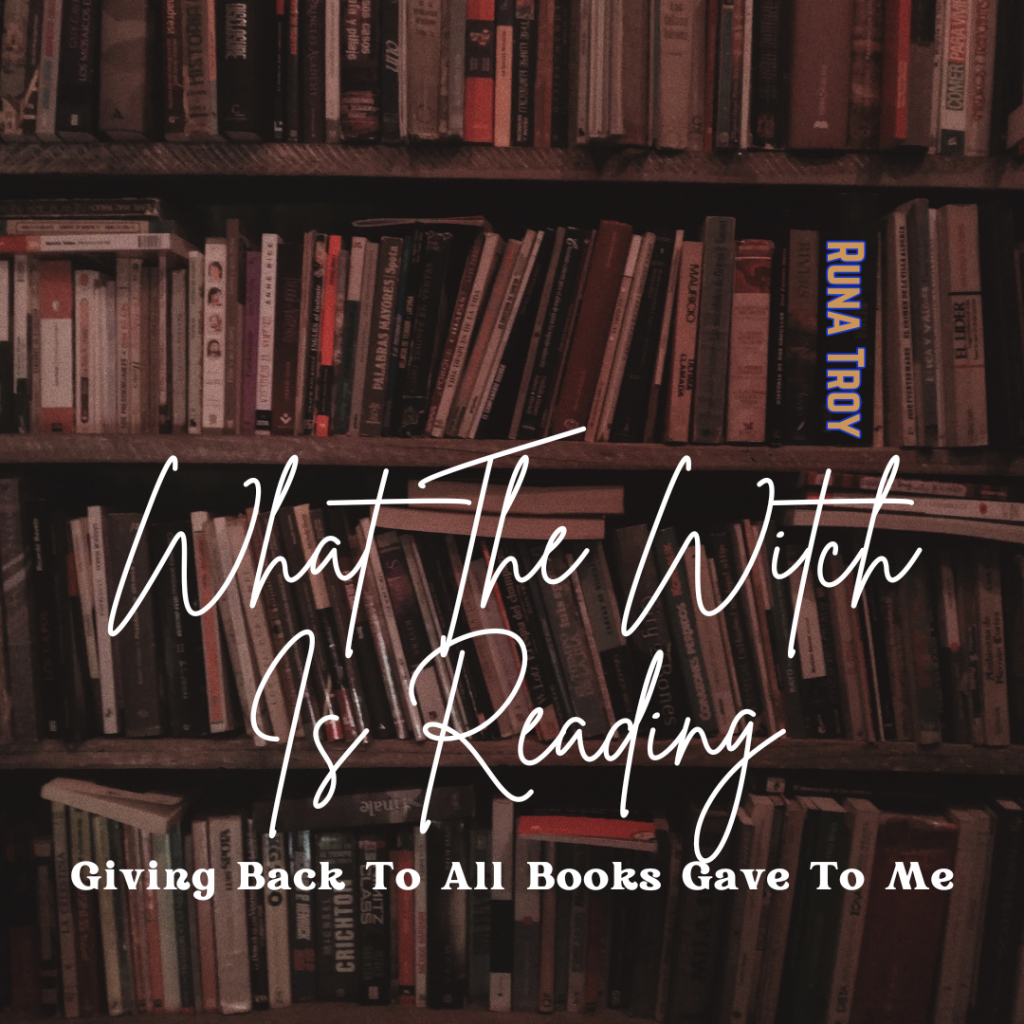
I have currently been doing a lot of reading. A lot. But it’s not the on-brand for a Witch reading I was doing over the last year where I reviewed the fun, interesting, and often esoteric books. Nope, this reading has been all for research for my current manuscript in progress. I should clarify that I still find this interesting and engaging – a lot of it in a field I’m sure is going to change so many people’s lives. But the subject matter is hush-hush until public announcements can be made. I will say it’s going to merge science, everyday life, and Witchcraft.
Despite having read a near Witch’s dozen of books since the last What The Witch Is Reading post, It hasn’t left a lot of fodder for ‘reviewable’ content. Posting a WTWIR on all these books would potentially give away the secret too soon. But it did make me want to write a bit about how reading helps our writing skills. Reading is a great writing teacher.
“Read, read, read. Read everything — trash, classics, good and bad, and see how they do it. Just like a carpenter who works as an apprentice and studies the master. Read! You’ll absorb it. Then write. If it is good, you’ll find out. If it’s not, throw it out the window,” as famously reported by John Ochwat as a William Faulkner quote.
I have read widely and intentionally as one of the more effective ways for me to become a better writer. Although my studio’s bookshelf is full of mainly esoteric books, the other shelves within my home feature everything from how to turn dirt into soil, writing books, novels in every genre, text books, biographies, poetry volumes – all of it.
Here’s what my daily reading habit (specifically book reading without the screen) has done for me over the years:
- Word Nerd Love. Reading builds vocabulary and language skills. As you read you’re exposed to different words and phrases. You unconsciously absorb grammar, syntax, and rhythm. You begin to see ways of improving your own sentence clarity and word choice.
- Story Set Up. Reading teaches structure and form. As you read you’re digesting narrative structures, pacing, story arcs, tension through observation, the conventions that each genre uses, and just the sheer vastness of formats from essays, to novels, to one of my favorites: flash fiction.
- Cheap Inspiration. It’s rare I’ll be reading a book that doesn’t rev-up my inner good-idea fairy. Books spark new ideas, themes, perspectives, and melded with your worldview, creates layers of possibilities. Have a writing block? Go to a museum or read new poetry. It unblocks things often in my experience.
- All The Feels. Reading enhances empathy, character development, and where rules are broken successfully. There are innumerable ways to see how different writers grow their characters, pace their stories, and get you – the reader – to relate to the text. You read how other writers make you feel something with their writing. That teaches us how we might accomplish the same within our own writing. Making the reader feel something is the whole point of being a writer. Reading allows us to contrast and compare, too, It shows us where the rules we’ve learned – both via reading or training – can be broken successfully, which often clicks open a new pathway via point #3 above.
- Think Better. Reading encourages critical thinking and reflection. You might notice when a writer isn’t as successful, but noticing when they are on point teaches us as well. You can see how others use voice, tone, and reflective phrases to make the reader pause and think. The more we do this the more we become better self-editors and begin to read like a writer – like noticing when a writer leans too heavily on adverbs or passive verbs, and then you’re scouring your manuscript to make sure you haven’t fallen for the same foible.
- Community. Reading motivates and sustains writers. Being able to talk about books ala clubs or within friendly circles is another way that reading helps us become better writers. Studying the discipline and craft of published writers propels our own craft forward. Reading about the community of writers can illuminate all kinds of tips and tactics. Love a particular writer? There’s a good chance their career is inspiring your own and pushing you to finish that project you’ve been working on for five years.
Reading is not just an enjoyable hobby, it can be a life-long teacher in writing. If you build a regular reading habit, and integrate it as part of your writing goals, things like new vocabulary, alternative structures, character development, and even critiquing others’ works energizes and brings new vigor to the writing process.
What are you reading? How did it change your writing?
Creator’s Note: I hope to return to regular What The Witch Is Reading selections very soon. This current Work In Progress is very demanding. 😉